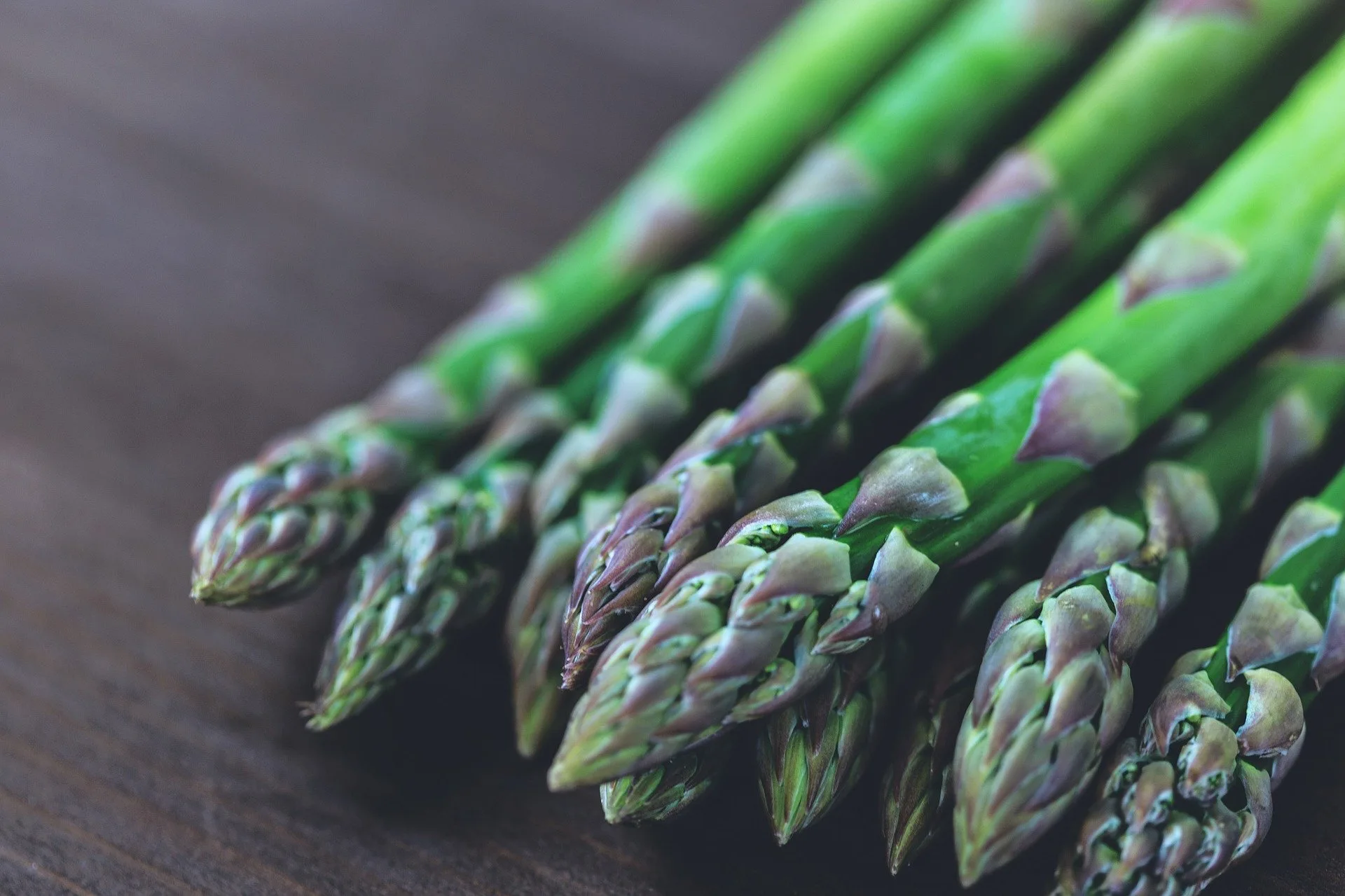Asparagus: it doesn’t look like much, but it might just be your new best friend. Not only is it packed to the brim with vitamins and minerals, but it might also be the solution to a hangover after a heavy weekend. Surprisingly, it’s actually part of the lily family, although it is also a vegetable. It’s one of the most popular veggies to cook with and comes in a wide variety of colors including green, white and purple.
Health benefits of asparagus
 Asparagus is, perhaps unsurprisingly for a vegetable, packed full of nutrients, vitamins, and minerals. It’s also incredibly low in calories, which makes it one of the healthiest vegetables to add to your diet. According to Healthline, 90 grams of asparagus contains just 20 calories and 0.2 grams of fat. However, it is relatively high in fiber and protein as well as containing
Asparagus is, perhaps unsurprisingly for a vegetable, packed full of nutrients, vitamins, and minerals. It’s also incredibly low in calories, which makes it one of the healthiest vegetables to add to your diet. According to Healthline, 90 grams of asparagus contains just 20 calories and 0.2 grams of fat. However, it is relatively high in fiber and protein as well as containing
- 57% of the recommended daily intake of vitamin K, which is essential for blood clotting and bone health.
- 34% of the recommended daily intake of Folate which is vital for a healthy pregnancy as well as cell growth and DNA formation.
- 18% of the recommended daily intake of vitamin A which is great for maintaining healthy vision and ensuring the functioning of the immune system (vital in the midst of a pandemic).
- 12% of the recommended daily intake of vitamin C which is necessary for the growth, development, and repair of all body tissues as well as improving and boosting the function of the immune system.
- 7% of the recommended daily intake of vitamin E is an antioxidant that can help to prevent damage at a cellular level.
- 6% of the recommended daily intake of potassium which is a mineral and electrolyte. It aids in the maintenance of muscles.
- 5% of the recommended daily intake of phosphorous, which is beneficial for the bones, muscles, and teeth. It also helps with recovery after physical exertion.
They are also full to the brim with antioxidants, particularly those rich in flavonoids quercetin, isorhamnetin, and kaempferol. Antioxidants neutralize free radicals which are produced as the metabolism works. Over-indulgence and drinking alcohol can increase the levels of free radicals in the body.
Asparagus for a hangover?
Over-indulgence and drinking alcohol can increase the levels of free radicals in the body and this is where asparagus might come in. The first reference to asparagus as a hangover remedy seems to be a 2009 study. This study looked at whether liver cells were protected from the harmful effects of alcohol by asparagus. The results did show a significant reduction in inflammation markers in the cells. Another aspect that the study looked at was ALDH.  ALDH is the enzyme that is responsible for breaking down alcohol in the liver. Testing on rat cells indicated that asparagus did enhance the activity of the ALDH enzyme. This study, therefore, concluded that asparagus was in fact beneficial and may have protective properties for the liver.
ALDH is the enzyme that is responsible for breaking down alcohol in the liver. Testing on rat cells indicated that asparagus did enhance the activity of the ALDH enzyme. This study, therefore, concluded that asparagus was in fact beneficial and may have protective properties for the liver.
A quick internet search on asparagus as a hangover cure is sure to reference this 2009 study. Unfortunately, there is very limited research when it comes to asparagus as a hangover cure or for liver protection. This study was very small in scale and was only carried out on rat cells in a petri dish. This, unfortunately, means that its value as a study is very limited and ultimately, more testing at a larger scale would be needed in order to ascertain whether asparagus is beneficial when it comes to hangover prevention and cure.
However, having said that, asparagus is incredibly healthy and is definitely a good thing to add to your diet whenever you can. It’s unlikely that eating some asparagus before you go out drinking will have any negative impact other than making your pee smell a bit weird. So, whether it is as helpful as the 2009 study claims for not, if you want to eat some before a particularly heavy weekend, go right ahead. Ultimately, it can only be good for you.
So will asparagus help with a hangover?
![start spring healthy [Longevity live]](https://longevitylive.com/wp-content/uploads/2020/03/flat-lay-photography-of-asparagus-351679-320x210.jpg) With only one study, it’s almost impossible to state whether asparagus is going to be of any significant benefit when it comes to preventing a hangover or even reducing liver damage when drinking alcohol. It’s definitely a fascinating study, but it needs a much wider scope in order to be of any real scientific value. As for whether you should eat asparagus. You definitely should! They’re a fantastic source of nutrients, vitamins, and minerals and can definitely benefit your overall health. Whether they’ll prevent a hangover is up for debate, but they should definitely be part of your diet.
With only one study, it’s almost impossible to state whether asparagus is going to be of any significant benefit when it comes to preventing a hangover or even reducing liver damage when drinking alcohol. It’s definitely a fascinating study, but it needs a much wider scope in order to be of any real scientific value. As for whether you should eat asparagus. You definitely should! They’re a fantastic source of nutrients, vitamins, and minerals and can definitely benefit your overall health. Whether they’ll prevent a hangover is up for debate, but they should definitely be part of your diet.
References
https://www.healthline.com/nutrition/vitamin-a-benefits
https://www.webmd.com/diet/features/the-benefits-of-vitamin-c#1
https://www.healthline.com/health/all-about-vitamin-e
https://www.medicalnewstoday.com/articles/325623
https://www.healthline.com/nutrition/asparagus-benefits#TOC_TITLE_HDR_2
https://hangovercure.org/guides/asparagus-hangover-cure/
https://www.sciencedaily.com/releases/2012/12/121226101227.htm



![women [longevity live]](https://longevitylive.com/wp-content/uploads/2020/01/photo-of-women-walking-down-the-street-1116984-100x100.jpg)










